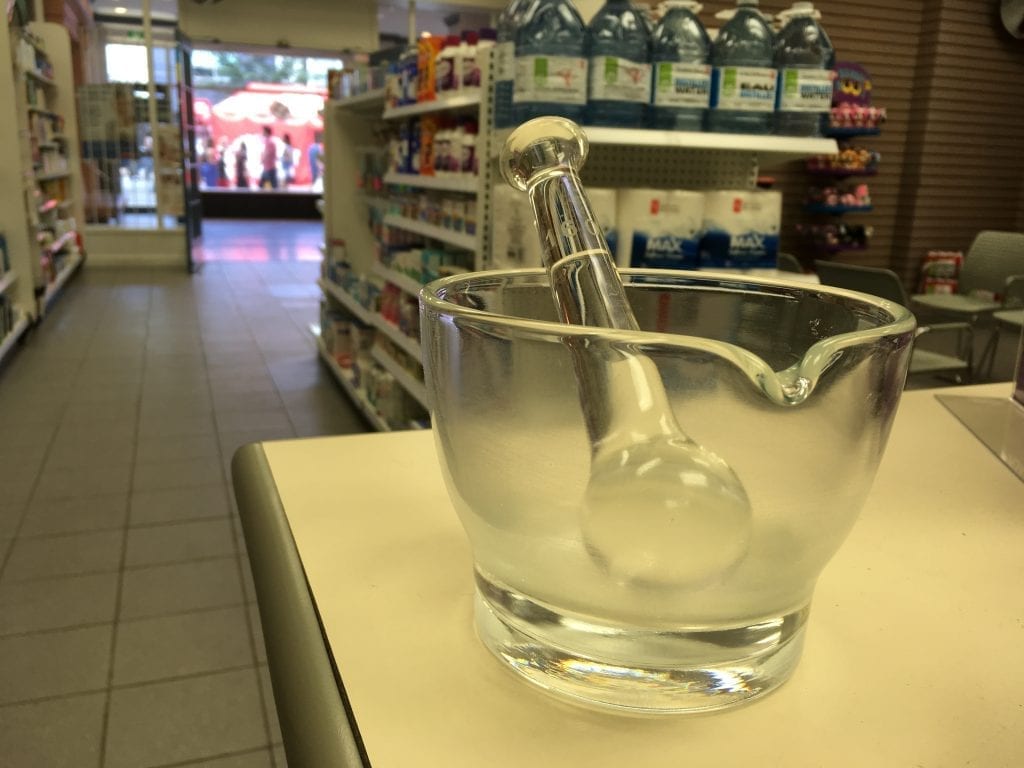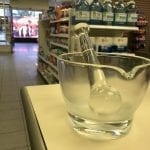BioIdentical Hormones – Be Informed! Part 2
2. Biodentical Hormone Therapy is natural, therefore bioidentical therapy is safe. Is it?
There are a lot of medicines made from natural sources but does that mean that bioidentical therapies are safe? For example, tiotropium is a derivative of atropine from Atropa belladonna, a tall bushy herb of the nightshade family, and is used in the treatment of chronic obstructive pulmonary disease (COPD), a chronic inflammatory lung disease that causes obstructed airflow in the lungs. Is the plant Atropa belladonna safe? Probably not—it is also called Deadly Nightshade because it is a highly poisonous plant. However, the synthesized product called tiotropium is very useful in the treatment of COPD. Natural doesn’t mean safe, and man-made, synthesized in the laboratory, doesn’t have to mean “bad”.
In the previous blog – Are the bioidentical hormones (BH) used by local pharmacies to compound formulations different from the bioidentical hormones used by pharmaceutical companies in commercially-available products?
I wrote that chemicals extracted from plants need to be modified, synthesized into human-like hormones that can be used by the human body. A few laboratories in the world synthesize plant extracts into bioidentical hormones which are sold to compounding pharmacies and pharmaceutical companies, and used to make bioidentical hormone products sold worldwide with or without prescription. Some women choose bioidentical hormone therapy (BHT) because they believe it is natural and therefore safe and risk-free. We may link the demand for other than commercially-available bioidentical hormone therapy (BHT) to the Women’s Health Initiative (WHI) trial conclusions.

Bioidentical hormone products are hard to reproduce-there’s batch-to-batch variation even in the same pharmacy
In 2002 the study was stopped because some of the participants who were taking estrogen plus progestin (a synthetized progestogen, not bioidentical micronized progesterone), had an increase in heart disease and stroke compared with those taking placebo (“sugar pills”). Reports showed a small but significant increase in cardiac events as well as a higher incidence of breast cancer. The media jumped on the news, omitted some of the details, exaggerated others, and women and healthcare providers alike became very scared of hormone therapy (HT). Having lost trust in FDA-approved drugs, and with few options to treat hot flashes and other menopause symptoms, women turned to custom-compounded bioidenticals. Celebrities with no medical background and paid to advertise, touted the benefit of these products in the media and encouraged women to buy them without informing them of their benefits and potential risks.
Could custom-compounded BHT be a safer option?
If commercially-available and custom-compounded products contain the same ingredients shouldn’t they have the same risks?
Why don’t we hear about custom-compounded BHT causing heart problems and breast cancer?
Pharmaceutical manufacturers of hormone therapy are bound by law to report to the FDA or Health Canada all the adverse drug reactions (ADRs) experienced by persons taking their drugs, during trials and post-marketing. Prescription HT products, e.g. tablets, patches, gels, creams, ovules, made by Big Pharma must be accompanied by a Consumer Information Leaflet explaining what the medication is for, how it should be used, possible ADRs, Black Box Warnings (which warn prescribers about serious adverse reactions or special problems), and more. However, compounding pharmacies aren’t obliged by law to provide customers with package inserts containing warnings and precautions, or any other information, for bioidentical hormone products. If information isn’t provided with the product—e.g., no standard label, no information regarding possible ADRS, absence of Black Box Warnings and precautions—it may give customers the illusion that the product is safer than commercially-available drugs, but it probably isn’t if it contains the same hormone ingredients. Women may not want to take conventional HT because of the increased risk of stroke, heart attack, blood clots, and breast cancer, but they shouldn’t be blinded by false or absent information about the safety of custom-compounded BHT. Products containing estriol (a type of estrogen hormone) are promoted as being effective without increasing the risk of breast or uterine cancer, but if both commercially-available drugs and custom-compounded products contain the same ingredients (hormones), then it is expected that both will cause the same therapeutic and adverse effects. There’s a lot of misleading and false claims online regarding BHT—do not buy bioidentical hormone products online. There’s no guarantee they contain what’s written on the label, they could have more or less of what is required, or they could have added ingredients that may cause harm.
What you don’t know can hurt you
Women should engage in discussion with unbiased healthcare providers and should educate themselves—learn from reputable, science- and evidence-based, reliable resources—before choosing a product. Be informed, be safe!
The first blog of this series Bioidentical-Be informed! is
1. BioIdentical Hormones
and the third blog in the series is
3. BioIdentical Hormones – Be Informed! Part 3: HT is made from plants or herbs, like yams, soy, or chasteberry. Bioidentical hormone therapy doesn’t contain drugs. Does it?
Teresa Isabel Dias is a pharmacist and Certified Menopause Practitioner (NCMP) who provides education and support on symptom management for women at work and at home so they’ll feel like themselves again and enjoy a vibrant and productive life.
Grab a quick guide and subscribe to the MenopausED Newsletter on the MenopausED home page.
If would like to know how Teresa can improve your menopause transition then schedule a complimentary Discovery Call at MenopausED.org.



